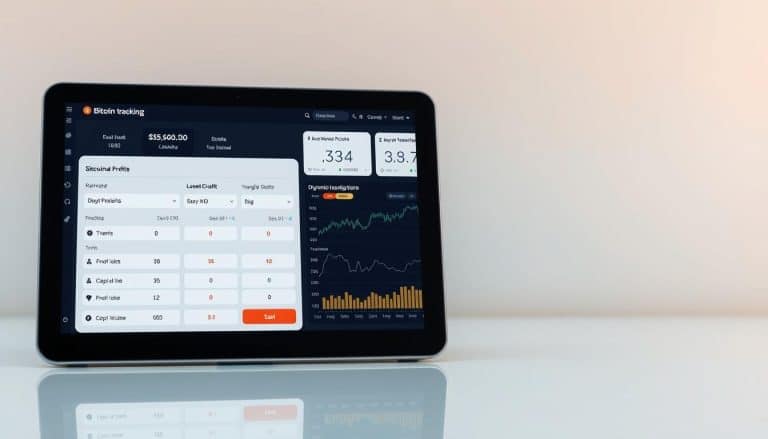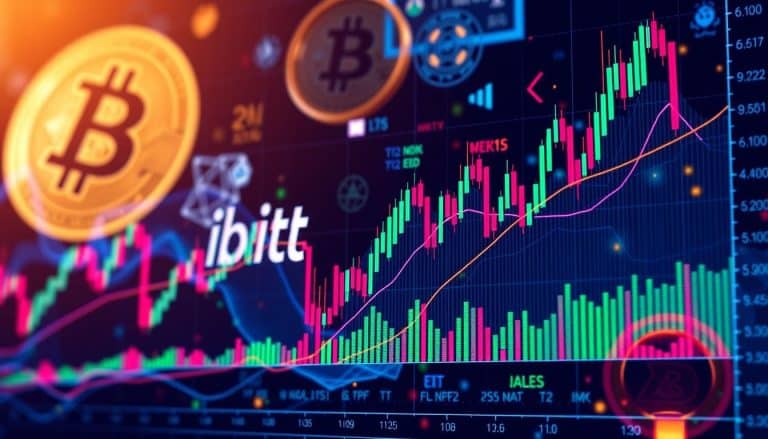XRP vs SEC: The Ripple Effect on Crypto Regulations
You’ve probably heard the buzz around XRP, the digital asset that’s been shaking up the financial world. But did you know that it’s also at the heart of a groundbreaking lawsuit with the Securities and Exchange Commission (SEC)? That’s right, the SEC’s case against Ripple Labs, the creator of XRP, has become one of the most closely watched legal battles in the crypto industry.
This case isn’t just about one company or one digital asset—it’s about the future of cryptocurrency regulation. How it unfolds could have serious implications for the entire crypto market. So, whether you’re an investor, a blockchain enthusiast, or just a curious observer, you’ll want to keep your eye on this story.
Overview of XRP SEC Legal Developments
It’s crucial to stay updated with the swift movements in the legal tussle between the Securities and Exchange Commission (SEC) and Ripple Labs, involving the digital asset XRP. This section aims to provide the key highlights of the case and explore the implications of SEC’s decisions on XRP.
Key Events in the XRP SEC Case
Let’s delve into the key milestones in the SEC’s lawsuit against Ripple Labs. First off, in December 2020, the SEC accused Ripple Labs and its top-level executives of raising over $1.3 billion through an unregistered securities offering, labeling XRP as a security. Ripple Labs retorted, contending that XRP is not a security, but a cryptocurrency.
Subsequent to this declaration, various crypto exchanges delisted XRP, causing its price to plummet. However, Ripple Labs filed a motion for the case documents to be redacted in March 2021, a request that was partially granted by the court. In the following month, Ripple Labs was granted access to the SEC’s internal discussions regarding crypto assets.
In June 2021, Ripple Labs got a considerable boost when the court denied the SEC’s request to access the financial records of two of Ripple’s executives, Chris Larsen and Brad Garlinghouse. Soon after, XRP witnessed a price spike.
Implications of SEC Decisions on XRP
The SEC decisions have immense impact on XRP, with each ruling causing degree of volatility in XRP’s market performance. For instance, the SEC’s initial accusation and subsequent delisting movement led to a significant drop in XRP’s value.
Furthermore, a favorable outcome for Ripple in this lawsuit could potentially diminish the SEC’s influence over crypto assets, setting a precedential example to cryptocurrency regulations globally. The judgement could either validate the standing of cryptocurrencies as non-securities, or conversely, impose stricter regulations that may inhibit the flexibility and growth of digital currencies.
It’s crucial for investors, banking institutions, and crypto-enthusiasts to keenly follow XRP lawsuit news and SEC’s decisions, as they carry potential implications on the evolution of cryptocurrency regulatory standards. The unfolding of the XRP SEC legal developments signifies a critical junction in the fintech world: to determine how far the arms of traditional financial regulators can reach into the innovative realm of cryptocurrencies.
Analysis of Legal Arguments by XRP and SEC
This section provides a comprehensive analysis of the legal arguments put forth by XRP and SEC during their ongoing lawsuit. The focal points cover XRP’s defensive strategy and SEC’s primary claims against XRP.
XRP’s Defense Strategy
XRP’s defense stands firm on the characterization of their digital asset. In their stance, XRP is not a security but a digital currency. Ripple Labs, the company behind XRP, reiterates that the currency operates independently of the company. Mainly, they argue, XRP exists in the open-source blockchain framework, over which they don’t have exclusive control. In fact, XRP was present before the establishment of Ripple Labs. They also champion the point that XRP’s market value isn’t tied to Ripple’s actions—a crucial criterion distinguishing a security from a currency.
Next up, XRP cites the 2018 decision by U.S Financial Crimes Enforcement Network (FinCEN) that classified XRP as a virtual currency. This move, they assert, contradicts SEC’s security claim. Lastly, they contest that SEC failed to provide fair notice that XRP was indeed a security.
For instance, platforms dealing in XRP, following SEC regulations, had sought clarity on XRP’s status. Yet, they received no definitive guidance. Ripple believes this lack of response propelled the perception that XRP isn’t a security.
SEC’s Claims Against XRP
The SEC’s allegations against XRP center on the unregistered security offering claim. According to SEC, Ripple Labs along with its executives, raised funds, beginning in 2013, through the sale of XRP in an unregistered securities offering. The SEC maintains that XRP is indeed a security as per the Howey Test, a commonly adopted standard for determining whether certain transactions qualify as ‘investment contracts.’
SEC affirms Ripple’s significant role in affecting XRP’s market price, signifying it as a security. Drawing upon emails and other promotional activities, SEC holds that Ripple created an information asymmetry allowing it to profit from XRP sales. SEC further argues that Ripple played a crucial role in the creation and supply management of XRP, thereby defying Ripple’s claim of XRP operating independently of them.
Lastly, SEC stands indomitable in their belief that because XRP is a security, its sales without proper registration violate the federal securities laws.
Scrutinizing these legal arguments, it’s evident that this ongoing lawsuit, driven by differences in XRP’s character definition, wields significant influence not only on the parties involved but also on global crypto regulations and the future of the digital assets market.
Impact on XRP Investors and the Market
The ongoing lawsuit between Ripple Labs and the SEC regarding XRP’s status has manifested in numerous ways, impacting both XRP investors and the overall crypto market. The uncertainty surrounding the outcome is sending shockwaves through the investment sphere, affecting the price of XRP and investor sentiment.
Market Reaction to Recent Developments
The SEC’s announcement of the lawsuit in December 2020 triggered an immediate negative market response, prompting numerous crypto exchanges to delist or halt XRP’s trading. As a result, the digital asset’s price plummeted by about 60% within days, demonstrating the broader market’s reaction to the news.
Further developments, including Ripple’s formal response to the SEC’s allegations and news on court hearings, have influenced XRP’s price. However, despite the unpredictable price swings, the XRP market has shown resilience and adaptability. The cryptocurrency managed to recoup some of its losses, indicating a strong community support amidst the debilitating news.
Advice for XRP Investors
Investment in digital assets comes with inherent risks — an epitomized fact in light of the SEC’s lawsuit against Ripple. Existing XRP investors find themselves in an ambiguous situation. So, what’s the best course of action in these tumultuous times?
First, it’s critical to closely monitor the lawsuit updates. Decisive factors include the court’s interpretation of the Howey Test on XRP and whether settlement discussions between Ripple and the SEC surface. These developments would likely create ripple (pun intended) effects on XRP’s value.
Second, consider diversification to mitigate risk. A diversified crypto portfolio may help cushion the negative impacts, reducing XRP-specific risks.
Lastly, investors must evaluate personal risk tolerance. Investment requires embracing the potential financial loss, especially in volatile markets like cryptocurrencies. As always, it’s prudent to only invest what you’re willing to lose.
Bear in mind, this isn’t financial advice and investors must always do their own research before making any decision. Navigating the volatile world of cryptocurrencies, particularly given the XRP’s current predicament, requires careful consideration and knowledge. Stay informed, stay vigilant. The XRP SEC news serves as a stark reminder of the regulatory uncertainties still prevalent in the cryptocurrency sphere.
## Future of XRP and Regulatory Challenges
Following its tussle with the SEC, the destiny of XRP hinges on prominent factors. You'll appreciate the interest of the dynamics of the lawsuit result on XRP's operations, and the broader regulatory expectations for cryptocurrencies as a whole.
### Predictions for Post-Lawsuit Operations
Navigating the stormy waters of the lawsuit, Ripple, the company behind XRP, faces potential operational changes in scope and structure. Some believe that, post-lawsuit, Ripple's functioning could modify significantly, given the need to comply with future regulatory guidelines determined by the SEC's actions. For example, if XRP, as per the SEC's claims, classifies as an unregistered security, Ripple may be compelled to register XRP as a security officially.
Yet, Ripple maintains its stance, arguing XRP as a digital currency. If the courts rule in favor of Ripple, the post-lawsuit scenario could witness a rejuvenated XRP making substantial leaps in its growth, buoyed by the legal validation of its operations and the potential uptake by more and more exchanges. XRP's market dynamics could thus see considerable changes, driven by both the legal implications of the lawsuit and the company's strategic decisions post-litigation.
Numerical values or figures forecasting XRP's market performance are hard to pin down due to the pending lawsuit's uncertainty. Keeping a vigilant eye on the unfolding events and the consequent market reactions becomes a prudent step for investors tracking XRP news, such as updates from [FintechZoom](https://fintechzoom.com/).
### Regulatory Outlook for Cryptocurrencies
The XRP SEC news, intricating the question of cryptocurrency regulation, poses a broader implication for the entire crypto market. Ripple's case spotlights the regulatory challenges cryptocurrencies face and the need for a well-defined framework to assist their growth and safe usage.
Countries around the globe are at variable stages of developing and implementing regulatory measures for cryptocurrencies. In the United States, regulatory entities like the SEC navigate uncharted terrains, as manifest in the ongoing case with Ripple. The lawsuit's outcomes could set a precedent, influencing future decisions on cryptocurrency regulations not just in the US but potentially impacting global norms.
The XRP case, thus, serves as a crucial indicator of what regulatory tightening might look like for cryptocurrencies. Investors and stakeholders across the crypto space, including those interested in other cryptocurrencies like Dogecoin, as covered by resources like [FintechZoom](https://fintechzoom.com/), would do well to follow the progress and outcomes of Ripple's lawsuit to predict and prepare for possible regulatory shifts.
Conclusion
Navigating the rough waters of the SEC lawsuit, Ripple Labs and XRP find themselves at the center of a pivotal regulatory showdown. Your understanding of this case’s developments is crucial as it’s not only shaping Ripple’s future but also influencing the broader cryptocurrency landscape. It’s clear that the lawsuit’s outcome will have far-reaching implications, potentially affecting global cryptocurrency regulations.
XRP’s market performance remains unpredictable due to the ongoing legal proceedings. As an investor, staying informed and closely monitoring the lawsuit’s progress becomes more important than ever. It’s a challenging time, but it’s also a time of potential change and growth in the cryptocurrency industry. Remember, this case could very well be a turning point in how digital assets are regulated, not just in the US but possibly worldwide.
In this ever-evolving scenario, your vigilance and adaptability will be key to navigating the future of XRP and the wider crypto market.
What is the ongoing lawsuit between SEC and Ripple Labs about?
The lawsuit concerns the classification of XRP, with the SEC alleging that Ripple’s sale of XRP was an unregistered securities transaction.
How has the SEC vs Ripple Labs lawsuit impacted the cryptocurrency market?
The market has experienced turbulence due to uncertainties surrounding the legal status of XRP, and consequently, speculations around its market performance.
What could the future hold for XRP post-lawsuit?
The future of XRP largely depends on the lawsuit’s outcome. Potential operational changes for Ripple could occur based on regulatory outcomes, influencing the regulatory outlook for cryptocurrencies at large.
Why is it important for investors to stay informed about this lawsuit?
Understanding the lawsuit’s progress provides insight into potential regulatory shifts, which can significantly impact an investor’s strategic approach to cryptocurrency markets.
How might Ripple’s case shape global cryptocurrency regulations?
Ripple’s case sets precedent for cryptocurrency regulation not only in the US but also potentially globally, if other jurisdictions align their regulations with the outcome of this case.







 Bitcoin
Bitcoin  Ethereum
Ethereum  Tether
Tether  XRP
XRP  USDC
USDC  Solana
Solana  TRON
TRON  Lido Staked Ether
Lido Staked Ether  Dogecoin
Dogecoin  Figure Heloc
Figure Heloc  Bitcoin Cash
Bitcoin Cash  WhiteBIT Coin
WhiteBIT Coin  Cardano
Cardano  USDS
USDS  Wrapped stETH
Wrapped stETH  LEO Token
LEO Token  Hyperliquid
Hyperliquid  Wrapped Bitcoin
Wrapped Bitcoin  Monero
Monero  Binance Bridged USDT (BNB Smart Chain)
Binance Bridged USDT (BNB Smart Chain)  Chainlink
Chainlink  Ethena USDe
Ethena USDe  Canton
Canton  Stellar
Stellar  Wrapped eETH
Wrapped eETH  Zcash
Zcash  USD1
USD1  sUSDS
sUSDS  Hedera
Hedera  Litecoin
Litecoin  Dai
Dai  Coinbase Wrapped BTC
Coinbase Wrapped BTC  Avalanche
Avalanche  Shiba Inu
Shiba Inu  PayPal USD
PayPal USD  WETH
WETH  Sui
Sui  Toncoin
Toncoin  Rain
Rain  USDT0
USDT0  Cronos
Cronos  World Liberty Financial
World Liberty Financial  Tether Gold
Tether Gold  Polkadot
Polkadot  PAX Gold
PAX Gold  MemeCore
MemeCore  Uniswap
Uniswap  Ethena Staked USDe
Ethena Staked USDe